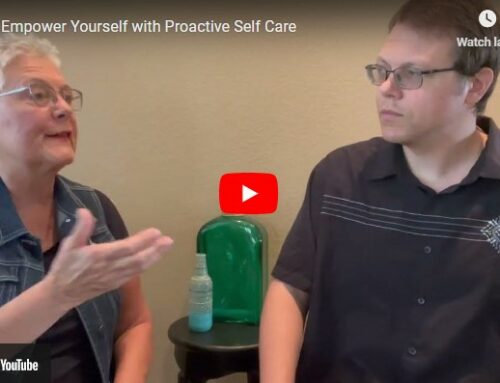By Dr. Tina Marcantel
Adrenal fatigue can result from chronic stress; it’s important to take a break now and then throughout each day to allow your body to relax. Dr. Tina Marcantel is a naturopathic physician in Gilbert, AZ, who also serves the East Valley cities of Scottsdale, Mesa, Chandler, Tempe, Queen Creek, Apache Junction, and the greater Phoenix area.
 I treat quite a number of patients who come to my office with signs of hormonal imbalances: adrenal fatigue, estrogen dominance, and hypothyroidism. All of these can exhibit the common symptoms of fatigue, irritability, insomnia, foggy thinking, mood swings, and several other related complaints. Adrenal fatigue is the result of the adrenal glands having to release cortisol over an extended period of time in response to chronic stressors in a person’s life. I’ve observed that in patients with Hashimoto’s disease (an autoimmune condition of the thyroid gland) that the condition often is exacerbated by stress. And women with low levels of progesterone, a natural sedative, produce more cortisol to compensate when they are in a state of estrogen dominance.
I treat quite a number of patients who come to my office with signs of hormonal imbalances: adrenal fatigue, estrogen dominance, and hypothyroidism. All of these can exhibit the common symptoms of fatigue, irritability, insomnia, foggy thinking, mood swings, and several other related complaints. Adrenal fatigue is the result of the adrenal glands having to release cortisol over an extended period of time in response to chronic stressors in a person’s life. I’ve observed that in patients with Hashimoto’s disease (an autoimmune condition of the thyroid gland) that the condition often is exacerbated by stress. And women with low levels of progesterone, a natural sedative, produce more cortisol to compensate when they are in a state of estrogen dominance.
People with these conditions have often fallen into an endless stress cycle—chronic stress in their lives causes hormonal and chemical imbalances, which in turn leads to a reduced ability to handle the stress, which leads to more chemical imbalances. So how can you break the cycle and start the healing process?
Part of my job as a doctor is to identify what those imbalances are through listening to your symptoms and through proper laboratory testing. That way, we can begin a treatment protocol of supplements and bioidentical hormones to try to bring those imbalances under control. But until the patient takes an active role in reducing stress levels in her or his life, it will be difficult to reach the healing she desires. That’s why I often ask, “Where are the ‘commas’ in your day?”
Just as commas break up long sentences and allow us to take a breath and process what we’re reading, we need pauses in our day to allow our bodies to rest and come into balance. Diverting to a calming act for your body decreases stress, causing the adrenal glands to decrease their production of cortisol, resulting in less of an excitatory response and bringing more of a feeling of tranquility and peace. By choosing to pace yourself better by finding increments of time in your day to slow your body down and quiet your mind, you will decrease the burden of stress on your body and allow it to heal.
A day in my clinic can be pretty hectic for me. It’s usually eight hours of seeing patients, reviewing charts, answering e-mails, researching cases, and taking phone calls. Here are a few examples of “commas” I use to break up the stress of the day:
*Snack time—eating a juicy, crunchy apple and consciously enjoying it
*Reading a few pages in a favorite magazine or book (maybe something inspirational)
*Taking a few slow, conscious, deep breaths (we take shallow breaths when we are in stress mode, providing less oxygen to the body for wakefulness)
*Pausing to give thanks for some of the specific blessings in my life (especially important when things aren’t going so well that day!)
*Stepping outdoors for a few moments of sunshine—the bright light helps awaken me and focus during afternoon sluggishness
*When I’m at home I like to break the day’s chores with a few minutes sitting in my back yard and listening to the symphony of the birds and enjoying my flower garden
So how do you pace yourself throughout your day to keep from burning out? The pauses don’t have to be lengthy—just enough to break the cycle of stress in your day. The calmness and peace of mind of the comma you allow yourself will benefit your body and prevent the buildup of stressors that can lead to sickness.





